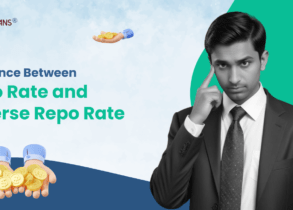Aug 08, 2024

Professional tax plays a critical role in financial management for individuals and businesses in India. Grasping its concept, rates, due dates, and compliance requirements is essential to avoid penalties and ensure smooth operations. This comprehensive guide offers key insights, assisting you in navigating the complexities and maintaining compliance. Whether you are an employer, employee, or self-employed individual, this blog will provide you with the crucial information needed for effective management of your obligations.
Professional Tax – Understanding the Concept, Rates, Due Date, and Compliance
Professional tax is a state-level levy imposed on income from employment, trade, profession or calling. It differs from the central government’s income tax and varies by state. Employers must deduct this levy from employees’ salaries and remit it to the state government.
What is Professional Tax and Who Levies It?
State governments impose a levy on income earned from professions, trades and employment. Each state has specific laws and regulations that result in varying rates. Municipal corporations within states handle the collection, requiring professionals to register and pay according to their income brackets.
For example, Maharashtra, Karnataka, and Gujarat each have distinct rules for this levy. Maharashtra sets rates based on salary brackets, while Gujarat follows a different structure. Local authorities within each state oversee the collection and enforcement of these regulations.
Professional Tax Rate
The rate is determined by the state government and can vary significantly across different states. Generally, you calculate it based on salary slabs, with a maximum cap of ₹2,500 per year. For example, in Maharashtra, the professional tax slab rates are as follows:
- Up to ₹7,500 per month: Nil
- ₹7,501 to ₹10,000 per month: ₹175 per month
- Above ₹10,000 per month: ₹200 per month (except for February when it is ₹300)
Other states have different slab rates, so it’s essential to check the specific rates applicable in your state. Karnataka, for example, imposes ₹200 per month for salaries above ₹15,000. Tamil Nadu has a different structure, with a maximum annual tax of ₹2,500.
Responsibilities of Employers and Self-Employed Individuals for Levy Collection
- Employer Responsibilities:
- Registration: Employers must register with the state’s relevant department.
- Deduction: They deduct the applicable amount from employees’ salaries based on the state’s slab rates.
- Remittance: After deduction, employers must remit the collected amount to the state government by the specified deadlines.
- Accurate Deductions: Ensure precise deductions from each salary to avoid discrepancies.
- Timely Payments: Make payments on time to prevent penalties and interest charges.
- Audits and Record-Keeping: Conduct regular audits and maintain precise records to meet compliance requirements.
- Self-Employed Individuals’ Responsibilities:
- Registration: Freelancers, professionals, and business owners must register with the state government.
- Calculate Liability: Unlike employees, self-employed individuals must calculate their own liability based on their income.
- Direct Payment: Pay the calculated levy directly to the state government.
- Stay Updated: Keep abreast of rates and compliance requirements, as changes can occur.
- Consult Experts: Regularly check updates from the state’s department and consult with a tax expert to stay compliant and avoid legal issues.
- General Compliance Tips:
- Proactive Management: Both employers and self-employed individuals must manage their responsibilities proactively.
- Accurate Deductions and Payments: Ensure accurate deductions and timely payments.
- Stay Informed: Stay updated on any changes in rates or regulations to ensure compliance and avoid penalties.
By following these guidelines, employers and self-employed individuals can effectively manage their responsibilities and maintain compliance with state regulations.
Who is Responsible for Paying Professional Taxes?
Both employers and employees are responsible for meeting their obligations.
Employers deduct the levy from employees’ salaries and remit it to the state government.
Self-employed individuals, such as freelancers and business owners, need to make payments directly.
Employers must keep up with current rates and compliance requirements to ensure accurate deductions and timely payments. Likewise, self-employed individuals should stay informed about applicable rates and deadlines to prevent penalties. Adhering to these rules ensures smooth financial operations and avoids legal issues.
How to Pay Professional Tax? Is Any Return to be Filed?
- Registration: Register with the respective state’s tax department. Both employers and self-employed individuals need to complete the professional tax registration process.
- Deduction: Employers deduct the levy from employees’ salaries based on applicable slab rates. Self-employed individuals calculate their liability based on their income.
- Payment: Remit the collected amount to the state government by the specified due date. Many states provide online payment options through their official portals.
- Filing Returns: Employers file returns periodically, usually monthly or quarterly, as per state regulations. Self-employed individuals must file annual returns.
Ensure timely payment and filing to avoid penalties. Many states have streamlined the payment process, offering online payment options and automated reminders for due dates. Accurate deduction, timely payment, and filing of returns ensure compliance and avoid penalties.
Consequences of Violation of Professional Tax Regulation
Non-compliance with professional tax regulations results in severe penalties, including fines and legal action. Delays in payment or filing returns attract interest charges and penalties, increasing the financial burden on your business.
Employers must ensure accurate deduction, timely payment, and filing of returns to remain compliant with state laws. Self-employed individuals must also stay updated with the professional tax rates and compliance requirements to avoid penalties. Compliance ensures smooth financial operations and avoids legal hassles.
Why Does This Tax Vary Depending on the State?
Variations in Levy Across States
- State-Specific Rates and Methods:
- Each state sets its own rates, slabs, and collection methods for the levy.
- Differences arise due to varying economic conditions, revenue needs, and administrative capacities.
- Authority and Flexibility:
- States have the authority to determine their own tax structures.
- This flexibility allows states to address their unique financial requirements and socio-economic conditions.
- Examples of Variations:
- Maharashtra: Applies specific slab rates based on income brackets.
- Karnataka: Uses different thresholds and rates compared to Maharashtra.
- Gujarat: May focus on broader income categories with varied rates.
- Tamil Nadu: Implements its own set of slab rates and collection methods.
- Economic and Demographic Considerations:
- States assess their economic conditions, population demographics, and revenue needs to create a suitable tax system.
- For instance, Maharashtra might impose higher rates for higher income brackets to generate more revenue.
- Gujarat may adopt a different approach to balance revenue generation and economic incentives.
- Impact on Professionals:
- A professional in one state might pay a different amount compared to a peer in another state, even with similar income levels.
- Regional variations ensure that states can tailor their tax systems to meet specific fiscal needs.
- Promotion of Economic Growth and Public Services:
- The flexibility in designing tax systems helps states promote economic growth and support public services effectively.
- Each state’s unique approach aims to balance revenue generation with economic incentives.
In summary, the levy varies between states due to their authority to set rates and methods based on individual economic conditions, revenue needs, and administrative capabilities. This ensures that states can effectively address their specific fiscal needs and promote economic growth while supporting public services.
Are There Professional Taxes in Union Territories?
Unlike states, most Union Territories in India do not impose this levy. However, you should verify the specific regulations for the Union Territory where you operate or reside. For instance, Puducherry does impose this levy, whereas regions like Chandigarh, Lakshadweep, and Andaman and Nicobar Islands do not.
Union Territories often have distinct regulations compared to states. Staying informed about the local requirements in the Union Territory where you conduct business is essential. This helps maintain smooth financial operations and avoids potential legal issues.
Additional Insights on Professional Tax
Understanding the nuances of this levy helps you stay compliant and manage your finances more effectively. Here are additional insights to deepen your knowledge:
Business Registration: When you register your business, ensure you complete the registration process for this levy as well. This step is crucial for compliance and helps avoid legal issues. Business registration and this levy registration are interconnected and both need to be handled together.
Salary Slabs: Different states have varying salary slabs. Ensure you know the specific slabs applicable in your state. This knowledge helps in accurate professional tax calculation and deduction.
Self-Employed Individuals: Self-employed individuals must calculate their liability based on their income. Accurate calculation ensures compliance and avoids penalties. Self-employed individuals should stay updated with the rates and deadlines.
Exemptions: Certain categories of individuals, such as senior citizens and physically handicapped persons, may be exempt from professional tax. Check the specific exemptions applicable in your state. This knowledge helps in accurate tax calculation and deduction.
Online Payment: Many states offer online payment options. Use these options for a hassle-free payment process. Online payment ensures timely payment and avoids penalties.
Penalties: Non-compliance with regulations can result in severe penalties. Ensure accurate deduction, timely payment, and filing of returns to avoid these penalties. Compliance ensures smooth financial operations and avoids legal hassles.
Conclusion
Understanding it is essential for maintaining compliance and avoiding penalties. By staying informed about the rates, due dates, and compliance requirements, you can ensure smooth financial operations for your business. If you need financial assistance, consider FlexiLoans for a seamless and efficient loan process.
By focusing on compliance, you can maintain a healthy financial status for your business and avoid legal hassles. Stay informed, stay compliant, and leverage financial solutions like FlexiLoans to support your business growth.
If you’re a business owner looking for financial assistance, FlexiLoans can help you with a quick and hassle-free loan process. It offers various business loans, including working capital loans, machinery loans, and unsecured business loans, tailored to your specific needs. Whether you need funds for expansion, purchasing equipment, or managing cash flow, FlexiLoans provides flexible repayment options and competitive interest rates. Apply for a business loan today and take the next step towards achieving your business goals.
Also Learn:
Check Income Tax Refund Status Online in 2023–2024
Tax Collected At Source (TCS Tax)
Income tax saving tips for small business owners
Advantages and Disadvantages of Goods and Services Tax in India
Types Of Taxes In India – What Is Tax, Definition and Benefits
Corporate Tax? Rates & Tax Liability, Benefits On Business Loans
FAQs
Q1. Why is professional tax different in each state?
Ans: It is a state-imposed tax, and each state has the authority to determine its rates, slabs, and collection methods based on its economic conditions and revenue needs.
Q2. Can I get a refund on professional tax?
Ans: Generally, it is not refundable. However, if you have paid excess tax, you may apply for a refund as per the state’s refund procedures.
Q3. Is professional tax applicable on all types of income?
Ans: No, this is applicable only on income earned from professions, trades, employment, or calling. It does not apply to income from other sources like investments or agriculture.
Q4. How can I register for professional tax?
Ans: Employers and self-employed individuals can register for this through the respective state government’s professional tax department. Many states offer online registration facilities.
Q5. What happens if I miss the due date for paying professional tax?
Ans: Missing the due date for paying this can result in penalties and interest charges. Ensure timely payment and filing to avoid these consequences.
Q6. Is there any exemption from professional tax?
Ans: Certain categories of individuals, such as senior citizens, physically handicapped persons, and ex-servicemen, may be exempt from professional tax. The exemptions vary from state to state.
Q7. Can you deduct professional tax as a business expense?
Ans: Yes, you can deduct professional tax paid by self-employed individuals as a business expense when calculating taxable income.







